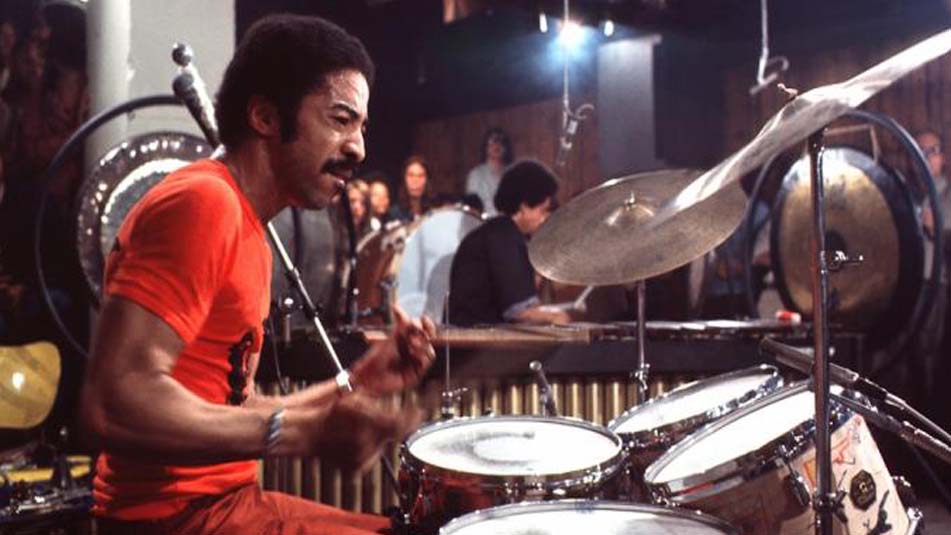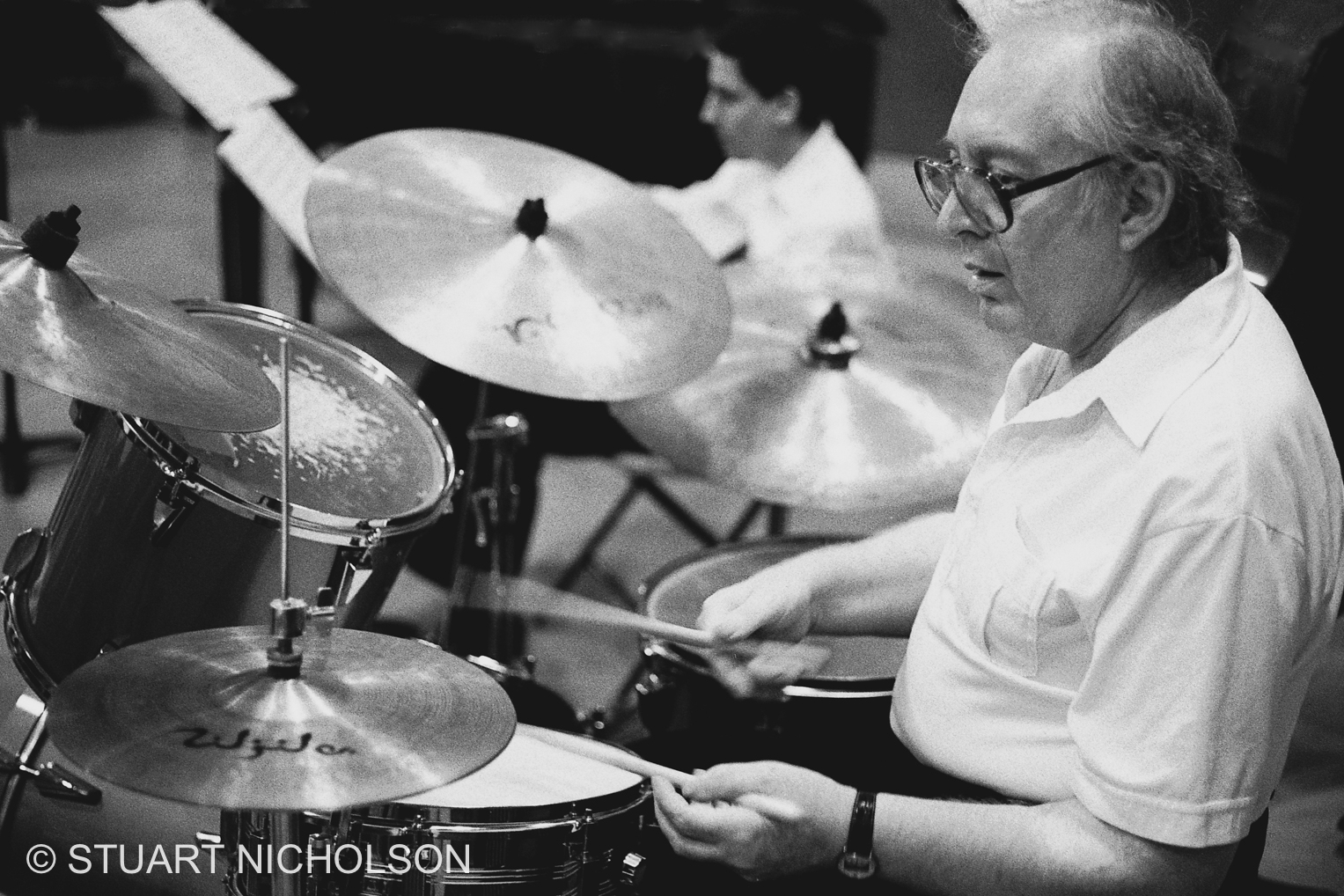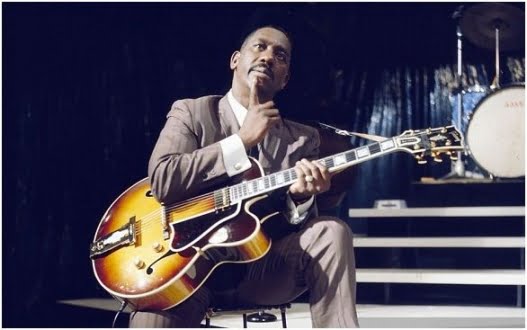The late Ira Gitler (1928-2019) was one of the foremost jazz critics and historians. Partly this was because he had “been on the scene.” He was an amateur alto saxophonist who loaned his horn to Coltrane in 1958 for a recording led by tenor saxophonist Gene Ammons.
He was second in command at Prestige Records, which means that he was present and often in charge at many legendary recording sessions of the 1950s. He wrote several significant books (more on these later), and over 750 liner-note essays. He contributed countless articles to most of the major jazz periodicals, including DownBeat, where he was Associate Editor for much of the 1960s. He produced concerts and hosted radio programs. Let’s stop there for now, but during this series, and others, we will have much more to share about Gitler, who I knew professionally over many years. In writing about Ira, I’m fortunate to have the help of his son Fitz, an archivist and researcher who has also been a D.J., writer, sound designer, and a music and podcast producer.

Today, I want to introduce something nobody has ever heard: Gitler’s own reel-to-reel tape of a panel discussion among leading drummers, which he conducted for a DownBeat article. The drummers are Cozy Cole (1909-1981), Art Blakey (1919-1990), Mel Lewis (1929-1990), and Tony Williams (1945-1997)—Wow! The discussion was held in Downbeat’s New York City office on January 28, 1964—Williams had turned 18 on December 12, 1963—and the article was published on March 26. I’ve attached the article here, and will also attach it to the future installments. It’s helpful to have it, but please be aware of several details about this and all other published magazine interviews:
—Magazine articles are not oral history transcripts. Not everything that is said is included.
—Even in what is printed, words and phrases are occasionally omitted or rearranged for clarity.

—In this case, there were three separate discussions. As noted in the article’s first paragraph, another one was held in Hollywood, and another in Chicago. The same questions were used at all of the panels, and the printed version presents selected replies from all of them, mixed together, but with each speaker clearly identified.

Because the conversation was about 84 minutes long, I’ll be sharing it with you in sections. Today you’ll hear the first 19 minutes. Ira asks the prepared questions, the same ones that were asked in Hollywood and Chicago as well, such as whether drummers get more respect than they used to. Although the questions were prepared, the follow-up question and comments from Gitler are of course his own. Much of this conversation appears in edited form on the first two pages of the article, and if you look at that, at least for the first few minutes, it will help you to identify the voices, to know who is speaking at each moment.

Blakey dominates, but everybody gets to participate. The last speaker in this first segment is Tony Williams.
At about 4:00, Blakey mentions an early review from when he was with Billy Eckstine (1944-46). It was written by a female journalist who described saxophonist Gene Ammons as a “snorting bull” and Blakey as an African Pygmy. He says that it was a positive review, and he didn’t let the racist language of the day bother him, “as long as she spelled my name right.” Blakey mentioned this review in other interviews as well. I haven’t found it in any jazz magazines, but it could be from a newspaper, so I’ll keep looking. (If you find it, let us know please.)

We will continue next time from exactly where we left off!’
The late Ira Gitler (1928-2019) was one of the foremost jazz critics and historians. We already enjoyed a long unedited panel discussion between Ira and four drummers, posted in four parts along with some history of Ira.
Today I’m sharing with you a conversation that he had with the beloved guitarist Wes Montgomery. As with the drummers’ recording, this was never intended for others to hear. It was Gitler’s personal recording from which to write up his article.
In my experience, most interviews before about 1960 were based on handwritten notes. That is important to know, because what you might assume are direct quotes of what a musician said are usually paraphrases. But from about 1960 on, most authors recorded their interviews, and still do. Then, the writer needs to turn this into an article, because most magazines do not publish oral histories. A simple straight transcription would not suffice. And as you’ll see by comparing the audio with the published version, also included here, most of what Wes said is in there, but it has been re-ordered and made into part of a flowing story. (Obviously, this method does not apply for a periodical like Cadence magazine that specifically publishes transcripts of interviews.)
Here are Ira Gitler’s memories of Wes and of the interview, courtesy of his son Fitz Gitler, excerpted from a piece that was probably for the Japanese magazine Swing Journal, and never before published in English (the complete piece is at the bottom for Paying Subscribers):
When I met Wes I found him to be as natural personally as his playing, a warm individual with a sense of humor. It was always a pleasure to be in his company whether he was performing or not. At the time I didn’t know about his fear of flying or that he was often stressed. I imagine this, along with being overweight, led to his high blood pressure. All I know that we really got along well and I was pleased when Downbeat asked me to go up to Boston, where he would be playing, to interview him for an article I would then write with an emphasis about playing within the context of an organ group. As I remember it, I wanted to bring in other aspects of Wes’s playing and his thoughts on non-musical subjects. We were happy to see each other but there wasn’t much time for the interview–between sets and, also briefly, after the gig. I had to fly back to New York the next day.
In fact, at the 15-minute mark of the audio you will hear Ira saying that he wished he had more time, but that he has to catch an 11:45 am plane back to New York City. Then Wes tells him that he will be “in town” (that is, NYC) soon, and Ira muses that he could have waited to do the interview there, but he adds that they (Downbeat) “don’t have to know that.” In any case, so it won’t be a wasted trip, Ira decides at that moment to build the written piece around his Boston visit.
Gitler also considers mentioning that he met Thelonious Monk at the airport. (Apparently he told Wes about that before the tape was started.) He did not include that detail in the published article. But that helps us to date the interview, because Monk’s quartet had just performed for a week at Boston’s famous Jazz Workshop, finishing late on May 17, 1964, and Wes opened there on May 18. So I would guess that at the NYC airport on May 18, Gitler met Monk arriving from Boston. If I’m right, the interview was conducted later that same day, and Ira flew back to NYC on the morning of May 19.
As Ira noted above, much of the interview is about the musical and practical aspects of playing with an organ—including the hassles of carting it around! There is also a long discussion in the middle about life on the road as a touring musician.








More Stories
CD review: George Benson – Dreams Do Come True: When George Benson Meets Robert Farnon – 2024: Video, CD cover
The band was tight as ever. The Warren Haynes Band cuts loose: Video, Photos
Interview with Alvin Queen: Feeling Good – I heard these tunes played by … Video, new CD cover, Photos